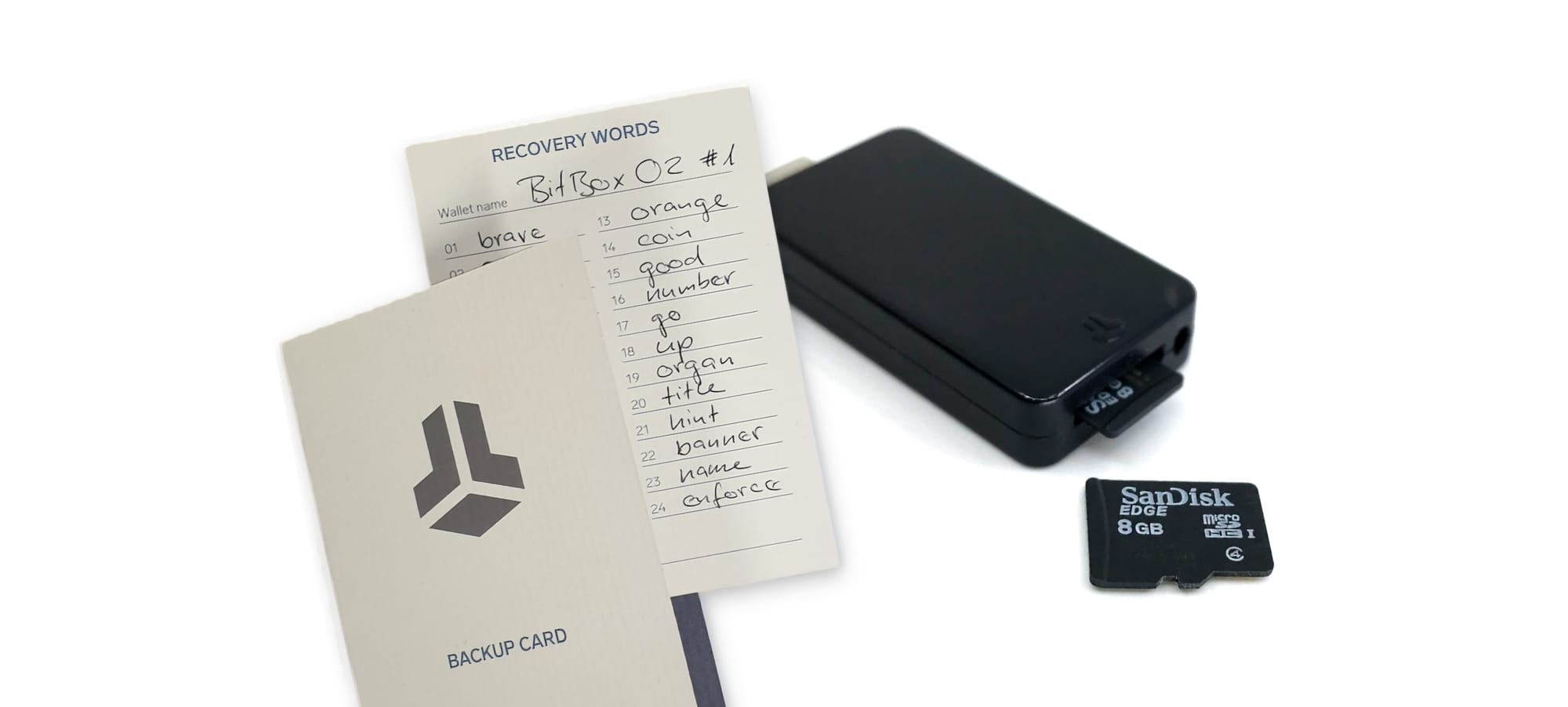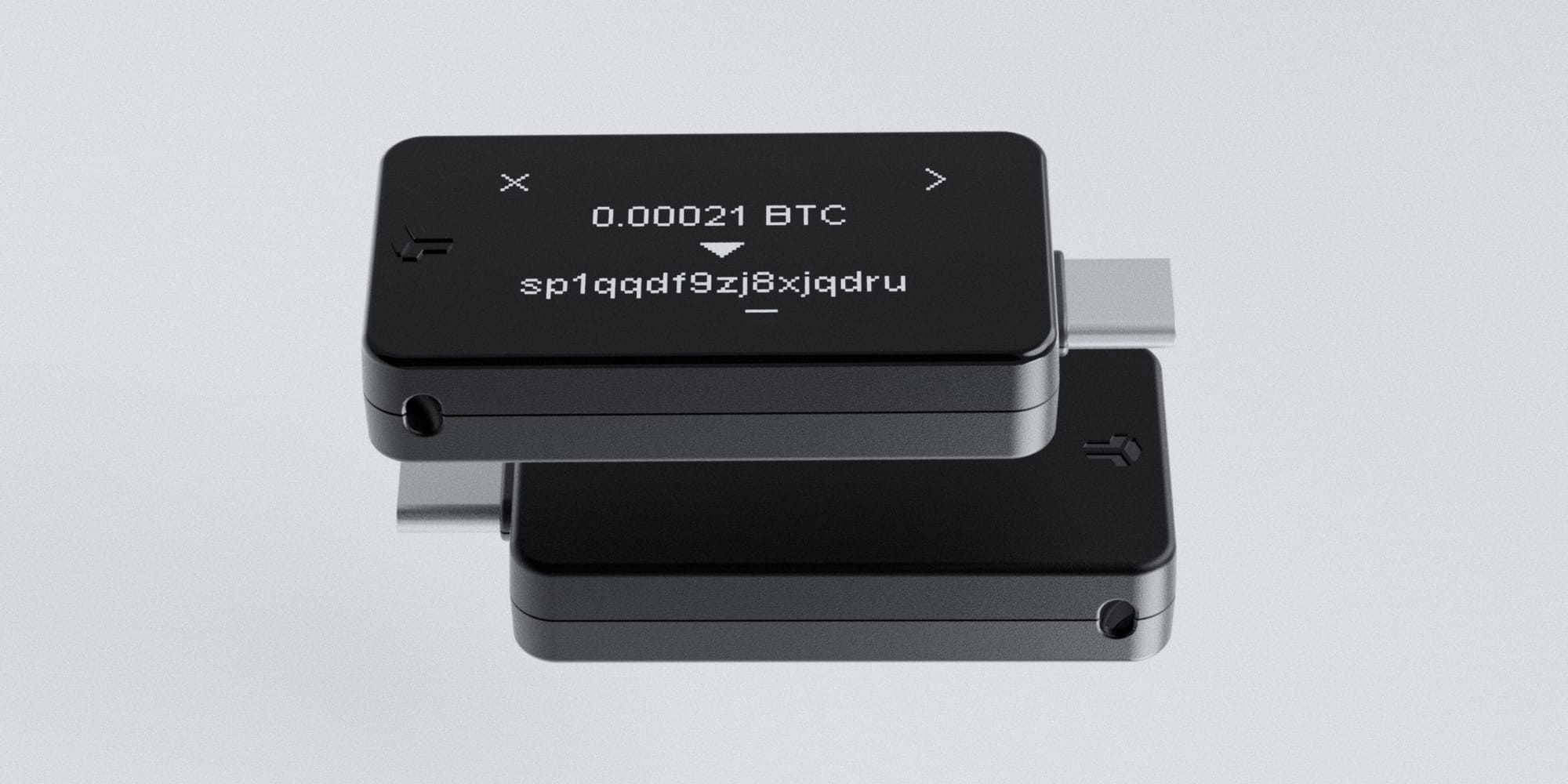Du kannst diesen Artikel auch auf Deutsch lesen.
Puoi leggere questo articolo anche in italiano.
Are you in the market for buying a hardware wallet to secure your bitcoin or other cryptocurrencies? Hardware wallets keep your private keys safe by storing them offline and out of reach from exchanges or potentially malicious devices, such as laptops or smartphones. While improving security, they should also keep things simple and easy to use, making self custody accessible for everyone. In short: You neither want to trust your computer or smartphone, nor should you have to become an expert in cryptography to be able to secure your coins – both these challenges can be solved with a good hardware wallet.
Of course, we are slightly biased as the makers of the BitBox hardware wallet when it comes to making direct recommendations. However, not all hardware wallets are “created equal”. While there will always be smaller differences in terms of features or design that ultimately come down to personal preference; some aspects are critical for security and the user experience. Let’s take a look at four such aspects we believe you should definitely look for when buying a new hardware wallet.
Secure display
The most vital aspect of any hardware wallet is the ability to verify transactions independently of the computer or smartphone it’s used with. Remember: the sole purpose of the hardware wallet is to avoid trusting these devices, since they are more likely to be tampered with or infected with malware. Without a display on the hardware wallet itself, you ultimately have to keep trusting that your host device doesn’t trick you into confirming something you shouldn’t – which renders the hardware wallet useless in the first place.
In the example below, the user wants to send a transaction to Alice. Their laptop, however, has other plans and instead provides the hardware wallet with a manipulated transaction to Carol. Only because of its display, the user is able to notice this manipulation attempt directly on the hardware wallet and can simply reject the transaction before it’s signed.
This is why carefully verifying transaction details and receive addresses directly on the secure display of the BitBox is so important, as it allows you to spot mistakes or manipulation attempts. We strongly recommend choosing a hardware wallet that comes with its own display, as this essential security aspect is otherwise completely lost, leaving arguably no advantage over conventional software wallets.
Find out more about why hardware wallets need a display in our article on the topic.
Open source everything
As a secure and independent monetary system, Bitcoin is fully open source, and the same should apply to your hardware wallet! This involves publishing the source code, allowing others to build and improve on it, encouraging collaboration. For security products like hardware wallets, the open source aspect also improves overall security, since it’s less likely for mistakes or even malicious code to remain undetected.
Being open source is one of our core values at BitBox. The BitBoxApp, BitBox firmware and even hardware schematics are fully open source, allowing independent security researchers and engineers to verify and audit what the device and app are built to do. This increases transparency while reducing the required trust in us as a manufacturer. Reproducible builds even allow users to verify the installed firmware originates from the public source code, and our bug bounty program incentivizes security researchers to actively search for and report vulnerabilities.
Find out more about what “open source” really means here.
Secure chip
Hardware wallets not only protect against malware on computers or smartphones, but also against physical theft in the event someone finds and steals them. At the core of hardening access to the device is the secure chip, which is specialized for cryptographic operations and has physical protections against tampering.
In other words, secure chips make it harder to extract secret information such as the private keys from the hardware wallet. Even if someone gets unauthorized access to it, this allows you to remain confident that your funds remain safe, allowing you to move your coins to a new wallet without panicking.
However, one major downside of secure chips is that they are usually closed source by design. But how can the BitBox firmware still be open source then? This is where the dual-chip architecture, pioneered by the BitBox02, comes into play, which combines the transparency of an open source firmware with the security benefits of a secure chip. The secure chip is not trusted, but only considered a security add-on – without worsening overall security in the event of a vulnerability.
Learn more about the dual-chip architecture of the BitBox.
Backup and recovery
No matter how advanced or durable your hardware wallet is – in the end it will always be just a technical product, and technical products can break. What actually secures ownership of your bitcoin are your private keys, while the hardware wallet is simply a tool to create and manage them. It’s essential that your hardware wallet allows you to create backups of your private keys, because it’s the backup that secures your coins in the long term.
These backups can come in many shapes and forms, but they should all follow the same industry standard to make future recovery attempts as straight forward as possible. Today’s most widely established standard is called BIP-39 and is commonly known as recovery phrases containing 12 or 24 English words. Make sure the hardware wallet you’re buying supports this standard, as almost every major hardware wallet does as well – avoiding dependencies on single manufacturers.

The BitBox not only allows manual backups of these recovery words by showing them on the display, but can also create digital backups of them on microSD cards, making the process more convenient and ensuring that new users have a valid backup right from the start.
Read more on how to create and secure your wallet backup.
Conclusion
Investing in a hardware wallet is a crucial step towards financial sovereignty, and keeping an eye on aspects like a display, open source firmware, a secure chip, and standardized backup options is key. While there will always be minor differences between certain products, these four aspects are fundamental for protecting your coins. Ultimately, the main priority is to ensure your private keys are kept offline and only belong to you, rather than risking exposure on exchanges or regular software wallets. Make your choice with these considerations in mind, and take control over your coins today!
FAQs
Why does a hardware wallet need a display?
A secure display allows users to independently verify transaction details directly on the device, ensuring that even if a connected computer or smartphone is compromised, you can detect any unauthorized changes before confirming a transaction.
What are the benefits of open source hardware wallets?
An open source firmware is more transparent and promotes collaboration, by allowing independent security audits, reducing the risk of hidden vulnerabilities, and building trust as the community can independently verify that the wallet operates as intended.
Do secure chips improve hardware wallet security?
A secure chip provides more protection against physical tampering, making it significantly harder for attackers to extract private keys, even if they gain physical access to the device.
Why are backups critical for hardware wallets?
Backup such as BIP-39 recovery phrases ensure that you can always regain access to your bitcoin and other cryptocurrencies if the hardware wallet is lost, damaged, or fails – safeguarding your coins in the long term.
Don’t own a BitBox yet?
Keeping your crypto secure doesn't have to be hard. The BitBox02 hardware wallet stores the private keys for your cryptocurrencies offline. So you can manage your coins safely.
The BitBox02 also comes in a Bitcoin-only version, featuring a radically focused firmware: less code means less attack surface, which further improves your security when only storing Bitcoin.

Shift Crypto is a privately-held company based in Zurich, Switzerland. Our team of Bitcoin contributors, crypto experts, and security engineers builds products that enable customers to enjoy a stress-free journey from novice to mastery level of cryptocurrency management. The BitBox02, our second generation hardware wallet, lets users store, protect, and transact Bitcoin and other cryptocurrencies with ease - along with its software companion, the BitBoxApp.

